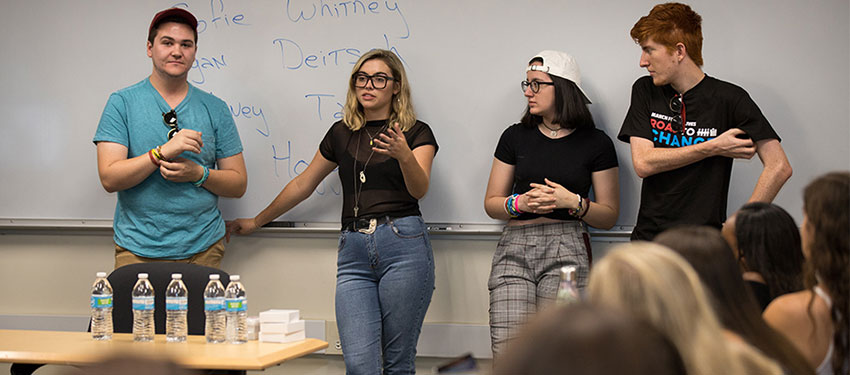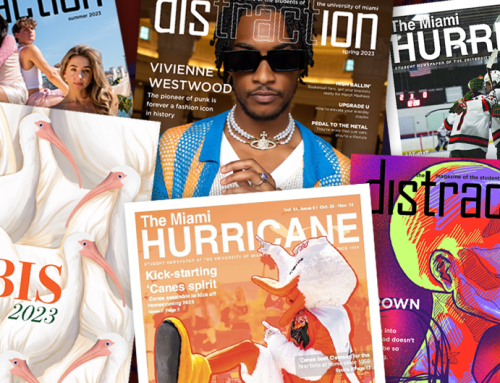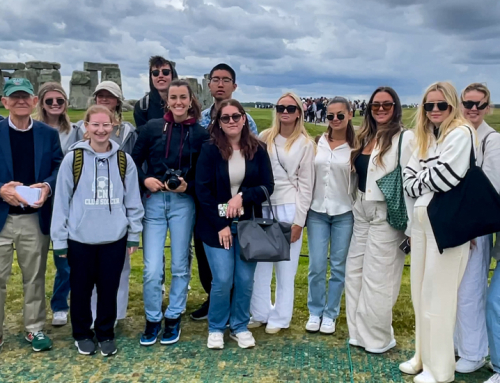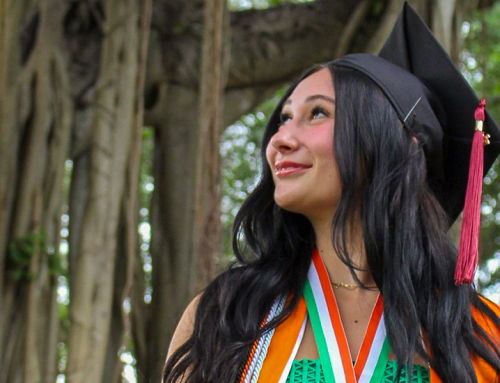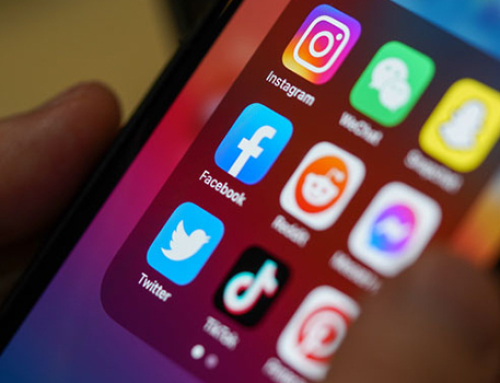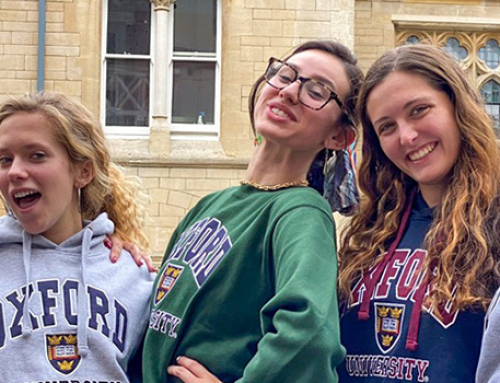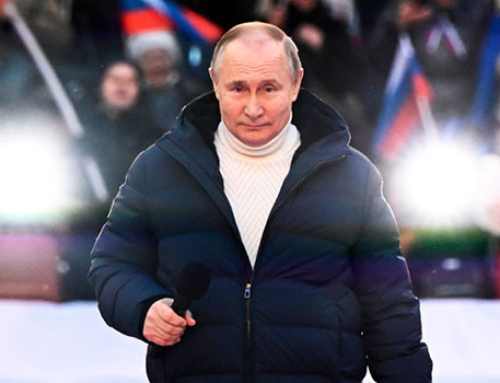A day after another mass shooting in their home state, students from Parkland, Florida, visited the University of Miami to talk with their peers about the challenges of mounting a national campaign against gun violence and keeping people focused on the need to drive change.
When the horrors of Sunday’s latest shooting at a dining and entertainment complex along the St. Johns River in Jacksonville surfaced, in which two people were killed and 11 wounded, Brendan Duff said one of the problems is that “people will see a headline and keep going.”
“What we need help with is how to keep people engaged with this and get them involved in the (communities) where they are,” Duff told UM students in the School of Communication.
Duff, a 2016 graduate of Marjory Stoneman Douglas High School, has taken a leave from Elon University to work on the March For Our Lives movement. This grassroots movement began when students from the school decided to take action following the Valentine’s Day slaughter of 17 of their friends and teachers. Duff was joined by three other Stoneman Douglas students who graduated this spring: Ryan Deitsch, Sofie Whitney and Delaney Tarr. Each of them has delayed college to work on March For Our Lives.
Heidi Carr, the SoC lecturer who teaches the Public Relations Campaigns class, a capstone class for seniors, said the idea of inviting the Parkland students surfaced as she thought about something her students could be passionate about.
The Parkland students would serve as the clients and the UM class will act as a public relations agency and will develop a fully integrated campaign for them so they can move on to the second phase of their March For Our Lives movement.
Gregory J. Shepherd, dean of the SoC, said a “distinguishing feature of our School is the opportunity students have to apply what they are learning in the classroom to actual circumstances and problems in the world. We also carry a strong commitment to doing work that makes a difference in people’s lives. This is a perfect example of marrying those two things.”
Carr said the her students will create materials to help develop local chapters of March For Our Lives throughout the U.S., as well as plan events like concerts to draw young people. They will also create brochures and other materials, as well as recommend improvements to the March For Our Lives website.
“This is something that actually is really relevant to me because I do come from Detroit where of course there is a lot of gun violence,” said Trea Harris, a student in Carr’s class. “I know people who have died because of gun violence.”
Nathaniel Derrenbacher said his classmates, who come from diverse backgrounds and have varied skillsets, will be able to create strategic communications and creatives that will help sustain the movement.
“I am excited to work on a national campaign and also see how their message and their movement translates to the local, state and national level,” said Derrenbacher.
Kelly Marie Castro was impressed by the recent high school graduates’ eloquence.
“They are so well prepared and aware of everything that they are facing,” Castro said. “I’ve been following them since the shooting happened, and I think it’s a fascinating opportunity for us to work with them and see the changes that they are making.”
The Parkland students said the focus of March For Our Lives is on gun violence prevention, not just in school shooting scenarios, but in all areas; facilitating youth activism; and “trying to make voting cool again.” They are keeping the scope narrow so as not to have their message diluted by all the issues that can be related to gun violence, such as mental health.
“We are really aware that this is a very multi-faceted issue,” said Tarr. “This isn’t just about school shootings.”
Deitsch, whose younger sister was hiding in a classroom next to where the Stoneman Douglas shootings took place, said the March For Our Lives movement has been gathering steam as he and his fellow Parkland survivors have been traveling across the country to invigorate the nation’s conscience.
For example, he said, each county in Arizona has a local chapter of March For Our Lives. The Jacksonville chapter is planning a vigil after Sunday’s shooting.
“We are very much a human movement,” Deitsch said. “We are just fighting for people’s lives.”
This story originally appeared at https://news.miami.edu/stories/2018/08/parkland-students-discuss-march-for-our-lives-with-um-students.html.
